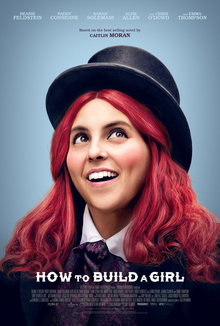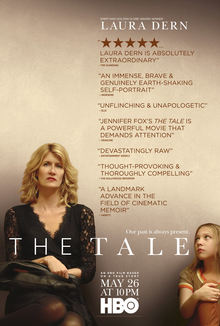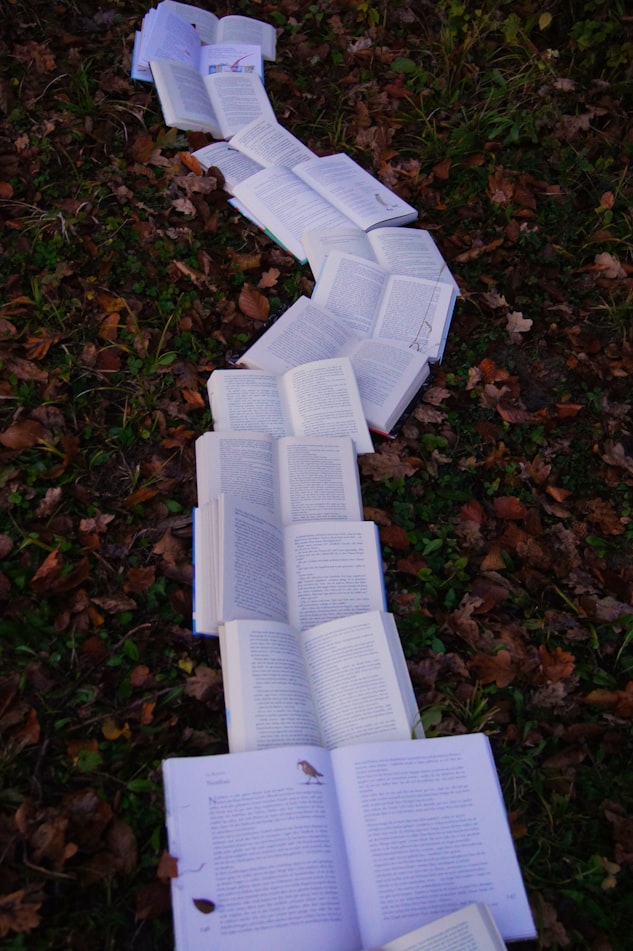Friday, May 10, 2024
A Slew of Binges: The Gentlemen, Shogun, Ripley, Baby Reindeer, Fallout
Saturday, December 16, 2023
Documentary Binges: Beckham & The Super Models
Thursday, March 2, 2023
Oscar Catch-Up Part 2: All Quiet on the Western Front, To Leslie, Living, My Year of Dicks
Well, some of these movies were harder to find than others but I finally did it! Nominated for acting, writing, a host of technical awards, or short-form animation, this is quite the collection and there is sure to be something to intrigue even the most jaded Oscar watcher.
All Quiet on the Western Front: A German adaptation of Eric Maria Remarque's 1929 novel by director Edward Berger (who also co-wrote the screenplay with Lesley Paterson and Ian Stokell), this movie is incredibly harrowing and gorgeously shot. There were multiple frames of this film that I would pause and stare at because they were beautiful to behold. But of course, at the end of the day, this is a dark and bloody movie about World War I, and all that beauty fades away amidst all the bloodshed.Felix Kammerer plays Paul, a young German schoolboy who is swept up in the patriotic fervor overtaking his country and quickly enlists alongside his other friends who are all turning eighteen. They are shipped off to the front and are filled with naive dreams of what a grand adventure this is all going to be. Their very first day quickly disabuses them of any notion that this is going to a fun boyhood romp, and for the next two and half hours, you will be forced to witness just how hellish war can be. I particularly appreciated the manner in which the movie highlighted the incongruity between the top brass who are negotiating a peace deal versus the actual men who are fighting their bloody war - there is such a discrepancy in the living conditions and realities that these two sets of humans are experiencing, and it wasn't something I had seen emphasized in a war movie before. Because I saw this movie on Netflix, I was able to pause it periodically to give myself breaks, which ultimately probably did the filmmakers a disservice but was of great service to my brain. It's a good movie, but it is also a very typical Oscar movie, grim and bleak and portraying the darkest days of humanity. Watch it if you're a completist, but if you know this genre is not your thing, you probably won't regret giving it a pass.
To Leslie: Directed by Michael Morris and written by Ryan Binaco, this movie has gotten infamous due to the unexpected Andrea Riseborough Best Actress nomination that is mired in controversy for potentially dubious campaigning practices. But let's put all that aside and consider the movie itself. Is Riseborough turning in an impressive performance, with a marvelous Texan accent to boot (she is very British in real life)? Yes. Do I think this performance is the best thing I've seen all year? Not particularly. Is it very typical Oscar fare? You betcha.This is the story of Leslie, a woman who won $190,000 in a lottery. We then pick up her story six years later, to find that she pissed away all that money, is estranged from her entire family, and continues to make extremely poor decisions because she is an alcoholic. What follows is a tale of a woman who returns to her hometown, occasionally tries to get on the right track, but keeps backsliding and is her own worst enemy, until a terribly generous and compassionate man decides to give her a shot. This man is played by Marc Maron, who I obviously love from listening to his podcast every week, but who is definitely doing some questionable accent work. His relationship with Leslie is quite sweet and ultimately, this movie did end up going in a direction I hadn't initially expected. It's a perfectly reasonable watch, but this is the kind of big "ACTING" role that the Oscars love but doesn't quite translate into making the overall movie something magnificent and memorable.
Living: I had to go to my local independent cinema to watch this movie - that's how dedicated I am to the cause. And also how dedicated I am to Bill Nighy, who has never been nominated for an Oscar before. Directed by Oliver Hermanus, with a screenplay by Kazuo Ishiguro, who adapted it from Akira Kurosawa's 1952 Japanese movie, Ikuru, this is the story of Mr. Williams (Nighy), a very boring bureaucrat who works for the London County Council in 1953 and seems to be a very plodding, ordinary sort of man. However, when he finds out he has terminal cancer, he decides to shake up his life and find some joy before it's too late.This is a very sweet movie, very British and melancholy, and also deeply profound about the human yearning for meaning in a rather pitiless existence. Those of us with office jobs will probably relate a little too closely with the plight of Mr. Williams, recognizing in him the tendency to become defeatist drones who just drearily shuffle paperwork from 9 to 5. But his quest to make human connections and find purpose in his final days is rather startling and it is of course impossible not to root for Nighy throughout the entire movie. I do want to be clear - this is a very slow and deliberate film, and it's the cinematic equivalent of reading an Ishiguro novel. It is all vibes, and very British, so steep in it like an Earl Grey tea bag and delight in the experience.
My Year of Dicks: Best Short Film (Animated) is not a category I pay much attention to. But this year, a number of hosts on pop culture podcasts I enjoy were very excited about their friend Pamela Ribon being Oscar-nominated for writing this hilarious and charming short film based on her 2014 memoir. It is the story of 15-year-old Pam, a virgin who has decided this must be the year she pops her cherry. And in five chapters we meet the various boys she encounters on this quest. Each chapter is told in a slightly different style, always with an over-the-top voiceover from the melodramatic Pam, who thinks that she is the star of a romance novel and talks like a Victorian heroine even though what she wants is decidedly un-Victorian.Directed by Sara Gunnarsdottir, this movie offers up wonderful insight into the mind of a teenage girl, the grossness (and then occasional sweetness) of teenage boys, and the awkwardness of parents. It's only twenty-five minutes long but it tells a classic tale in a novel fashion. Ultimately, it is a delicious romcom, and it will make you chuckle and sigh as you think about all of your failed relationships and the voices in your head that don't always give you the best advice. This is a great opportunity to check out an Oscar movie that won't take up all of your time and will make you smile - what more do you need?
Tuesday, December 6, 2022
Memoirs of a Director: Armageddon Time & The Fabelmans
Oscar season is upon us and as all the prestige movies roll into theaters, we have two semi-autobiographical films about the directors' childhoods. Both men are grappling with Jewish identity and families who don't fully support their artistic endeavors, but they still put their individual stamp on these films to make unique and compelling cinema.
Armageddon Time: Written and directed by James Gray, this film is a perfect snapshot of 1980 in the life of Paul (Banks Repeta), a sixth-grader growing up in Queens, New York. He loves to draw and dreams of being a famous comic book artist, but his dreamy nature means that he doesn't do particularly well in public school and keeps getting into trouble. He befriends a young Black boy, Johnny (Jaylin Webb), who has already been labelled a troublemaker by their teacher and most other adults; what follows is a story of the tenuous friendship between these two kids, and the many ways in which the system always fails Johnny while giving Paul multiple chances to succeed.Paul's family life is portrayed by a who's who of actors, with Jeremy Strong playing his taciturn father, Irving, who is prone to bouts of violence and has a massive chip on his shoulder, and Anne Hathaway as his overwhelmed but ambitious mother, Esther. All they want is for their sons to succeed in life and have a better life than they did, and they have the support of Esther's father, Aaron, played with overwhelming kindness and generosity by Anthony Hopkins. Aaron is the only family member who truly sees Paul and his dreams, and he encourages him to be the best person he can be. But as the movie proceeds, it becomes clear that even his grandfather's support is somewhat rhetorical and will always take a backseat to the practical considerations of ensuring Paul can have a better life.
This movie imbues every character with nuance, never painting anyone as an abject villain (well, except for cops and teachers, who very literally divide the world into black and white). Instead, there are many grey areas to navigate here, and Paul quickly comes to learn that having the best of intentions still cannot translate to the best actions and outcomes. It's a somewhat heartbreaking tale, but there's also a great deal of hope in it. And the fact that we know this is semi-autobiographical means that I left the theater with a sense that here was a man who, like that little boy, is still trying to do the right thing. It's up to you as the audience member to decide whether or not he succeeds.
The Fabelmans: Directed by Steven Spielberg, who co-wrote the screenplay with Tony Kushner, this is the story of Sammy Fabelman, a young Jewish boy in the 1950s who we follow as a young boy to his first years in college as his family moves from New Jersey, to Phoenix, to California in service of his father's job. His parents, Burt and Mitzi, are played by the wonderful Paul Dano and Michelle Williams, and while they are both very loving, they take different tacks in supporting Sammy's burgeoning love for film and cinema. His father, an engineering genius who is the family's breadwinner, wants his son to be sensible, and stable, and go to college instead of indulging in this "hobby." While his mother, a woman who could have been a concert pianist but instead chose the traditional path and became a housewife, encourages him to be an artist and follow his dreams.This is a movie about the push and pull between art and responsibility, the outsize influence our families have in shaping our lives when we are younger, and the turbulence and turmoil of adolescence. There's a lot of family drama (and at times comedy) here, but I found myself unmoved by those emotional machinations. There is a lot of attention paid to how Sam's movies make the people around him feel, but for me, this movie was such a piece of technical brilliance that I found myself simply captivated by its story about filmmaking, and couldn't be bothered about the humans.
There are long, loving scenes of spooling and unspooling and splicing film, making cuts and edits, finding the right piece of music to score, indulging in different genres, finding novel techniques to achieve special effects, coaching your actors to get just the right emotion. It's a master class in directing - you're watching the novice Sammy learn how to direct, but because Spielberg is directing this movie, you're benefitting from the fact that he is now this incredible, seasoned director who knows exactly how to tell this story about his younger self. There are scenes where he simply lingers on Michelle Williams' face as she watches a film, or shows how the pulse in someone's neck slowly fades away, or suddenly veers into an homage to West Side Story in the movie's final act when Sammy becomes a high schooler. It's almost Inception-esque, with films within films, and directing within directing.
The final shot of this movie made me laugh. That's all I'll say. But as far as I'm concerned, it is the most memorable and classic way to end this film - that one shot captures everything I've said about the winking, meta nature of the script, and serves as a reminder of how lucky we are to still have Steven Spielberg directing movies.
Tuesday, August 9, 2022
Bollywood Feminism: Masaba Masaba & Darlings
Monday, June 27, 2022
This Is Going to Hurt: The Perils of Medicine
Saturday, May 7, 2022
Quiet Comedy: Somebody Somewhere and Rothaniel
I have been spending a lot of time catching up on TV shows and have a slew of recommendations headed your way. To ease you in, let's start with two small, wonderful, heartfelt comedy gems. One is a sitcom, and one is a stand-up special, but both will find ways to make you laugh and break your heart.
Somebody Somewhere: Set in the small town of Manhattan, Kansas (not my Manhattan), for seven episodes you will follow Sam (the brilliant Bridget Everett) who moved back to her hometown to take care of her sister, but is now at loose ends following her death. She is a little bit aimless, going through a midlife crisis in her 40s and frustrated that she doesn't quite know what she should be doing with her life, but as the series progresses, she slowly starts to discover people and things that make her happy. There's her wonderful friendship with co-worker Joel (the marvelous Jeff Hiller) and her tenuous relationship with her sister, Tricia (Mary Catherine Garrison), and her parents, Mary Jo and Ed (Jane Drake Brody and Mike Hagerty), which go through peaks and valleys as she tries to sort out what exactly she wants and needs from these people.This show is quietly funny and quietly devastating, a look at how people can be both kind and cruel to each other but are essentially just stumbling along trying to do the right thing. Created by Hannah Bos and Paul Thureen, it is also produced by the Duplass brothers, with Jay Duplass directing some episodes. It reminded me so much of watching their movie Jeff Who Lives At Home, which was also a sweet surreal film about finding your place and discovering your purpose. These are difficult questions that I wrestle with daily, so any time I can find pop culture that deals with it in a deft and funny way, I'm sold. The familial relationships are all tangled up in keeping secrets and keeping things private, but there's a wonderful throughline about chosen family and getting the right people around you so that you finally know how to ask for help when you need it. Given how short and sweet this show is, I can't give away much plot, but all I can say is that you need to let it wash over you.
Rothaniel: Settle in for a topsy-turvy hour of secrets and revelations. Comedian Jerrod Carmichael sits down on a stage and tells us a captivating story about his family, how he was raised, secrets he has kept, and secrets he will no longer be keeping. If you have seen or heard anything about this special, it's probably about how this is the hour in which Carmichael comes out as gay, but that revelation is only the beginning of what makes this show so special. Instead, what's more important is how that news is received, by his family, by his friends, and even by this audience that he is currently telling this story to.The special is directed by Bo Burnham (who made the devastatingly great Inside), and despite it featuring a man on a stage telling "jokes" to a room full of strangers, it feels intimate and personal. Audience members routinely talk to Carmichael, asking him how he feels, if he wishes he had done things differently, or offering up words of encouragement and reassurance. The show doesn't quite feel like comedy, it feels like catharsis; it reminded me of Hannah Gadsby's groundbreaking Nanette, which was yet another show where a comedian came to grips with who they were and took the audience on a sometimes uncomfortable but thoroughly revelatory ride. So check out Rothaniel. It's a wise, moving, funny, and eye-opening hour.
Friday, January 14, 2022
Italian Storytelling: The Lost Daughter & The Hand of God
Friday, November 19, 2021
Beautiful Black and White: Passing & Belfast
If, like me, you love classic cinema, you are always cautiously optimistic when a modern movie comes out that is filmed in black and white. Is it a gimmick? Yes. But is it often deployed to wondrous effect, particularly given advances in cinematography and digital film? Yes. So today I present to you two new movies that are shot in black and white for very different but equally fascinating reasons.
Passing: Written and directed by Rebecca Hall (this is her directorial debut as she joins the ranks of actresses turning into directors, a trend I fully support), based on the novel by Nella Larsen, this is a quiet but tense movie about two Black women in 1920s New York, one of whom is light-skinned enough to be “passing” as white. The movie begins when Irene (Tessa Thompson) runs into Clare (Ruth Negga) downtown at a swanky Manhattan hotel. Clare recognizes Irene and comes over to have a glorious reunion with this woman she hasn’t seen since high school. The trouble is, Clare is pretending to be white, while Irene has merely been indulging in a wild moment to see if she can “pass” in this hotel, but is otherwise a very proud Black woman who lives up in Harlem with her “dark” husband and children.What follows is a fraught story of a tenuous friendship that is based on lies from its very foundation, and is perpetually dancing on a razor’s edge of danger and destruction. Clare is married to a racist white man (played by Alexander Skarsgard, in an inspired bit of casting for the “whitest man alive”), but her reunion with Irene reminds her of how much she misses Black culture and freely hanging out with her own people. So she keeps coming up to Harlem and starts insinuating herself into Irene’s life in increasingly problematic ways that make Irene start to question her own life. And of course, there is the constant thrum of the question of “the race problem” in America, with Irene and her husband struggling with how to help their sons deal with racial abuse casually hurled at them in school or on the streets, and whether they should leave the country altogether.
Shooting this movie in black and white is a very literal choice - after all, it’s about the state of Black and white people in America. But the cinematography and lighting has such a lot of technical wizardry and thought behind it. In scenes where the women were “passing,” the filmmakers would flood the sets with light so that it would be difficult to ascertain the actors’ skin color. There is so much psychological and physical nuance to play with in this story, and both Thompson and Negga are incredible at capturing all the struggles these characters face, not just because of their Blackness, but also because they are women. Clare is in such a dangerous position - she technically has everything she could want because she married a rich white man, but she will be destroyed if he ever finds out her true identity. The notion that she spent her entire pregnancy in a wretched state because she had to pray her child would be born light-skinned is horrific to contemplate. This woman has made the ultimate deal with the devil and as the movie progresses, you will get to see how that deal turns out and the toll it takes on the people around her. This story may be from the 1920s, but its themes are just as relevant today where racism and colorism continue to run rampant. So settle in and watch Passing. You will have a lot of food for thought.
Belfast: Written and directed by Kenneth Branagh (another actor turned director!), this is a very personal original screenplay based on his childhood in Northern Ireland during the Troubles, and the agonizing decisions his family had to make as to whether or not they would have to leave Belfast and all the people they loved. Despite the heavy subject matter and all the chaos and rioting unfolding on screen, the movie is surprisingly light and deft because it is told from the perspective of 9-year old Buddy (the wondrous Jude Hill, who is going to pick up all manner of Young Artist awards this year). Even the camera angles are often designed to show you this world from a child’s vantage point, because you’re always looking up at things or having the adults loom over you while they talk.Speaking of the adults, Jaime Dornan and Caitriona Balfe play Buddy’s parents, while Ciaran Hinds and Judi Dench are his grandparents. That’s some all-star casting right there, and they are all magnificent, particularly Balfe who has to carry the heft of being a woman raising two sons in the middle of all this chaos while her husband only comes in every other weekend as he’s working on jobs in England and trying to make enough money to support the family. This couple is struggling and you get to see the emotional decisions and fights that are taking place as they try to protect their family amidst all the sectarian violence. They are Protestants, but they live on a street with a lot of Catholic folk that they love and consider family. However, they are increasingly being pressured to join violent Protestant gangs and the entire situation is unfathomable.
Throughout this tension, however, Buddy is just being a regular kid, struggling to do well on his homework to impress and (literally) get close to a smart girl in his class, and indulging in his love for movies, TV, and theater that heralds the future Sir Kenneth Branagh that he will become some day. At one point, there’s a scene of Buddy avidly reading a Thor comic and it made me laugh as that was a clear homage to Branagh directing the first Thor movie for Marvel, which at the time felt like an odd choice for the mostly Shakespeare-focused thespian.
The black and white cinematography in this movie is simply sumptuous, capturing the nostalgia and beauty of this time despite all the hardship, and I don’t think any of these actors have ever looked better. It’s an odd thing to say, but I’ve never been more aware of how blue their eyes are than when I saw how clear they looked in black and white. And I love nothing more that looking at a beautiful old wrinkled face in black and white - God bless Judi Dench, but her wrinkles and un-Botox’d face have never looked lovelier on the big screen. However, this movie does periodically have color: when Buddy is at the movies watching something in glorious technicolor, or watching a theater production. The effect makes it clear that this is when his world comes alive, and no matter all the heartbreak and angst going on around him in the quotidian sufferings of mankind, he can always escape to these places to find worlds that are new and exciting and joyous.
Ultimately, Belfast is a glorious cinematic memoir, a perfect encapsulation of why Branagh became the man he did, and a loving ode to his childhood and the people who suffered so much through the Troubles. This movie is probably the first time I have seen an insider’s account of how it felt at the time and all the religious rhetoric and human idiocy that went into the escalating tensions. The movie’s dialogue can get a little hokey in places, and Buddy’s family can often seem quite saintly in their tolerance and common sense approach to religion and other human divisions. But in our increasingly frayed and polarized times, this film is a welcome reminder that humans have always sown unnecessary discord amongst themselves, and what we really need is to move beyond that and recognize our common humanity. Stop fighting each other and go watch Chitty Chitty Bang Bang. That’s my biggest takeaway from watching Belfast.
Sunday, May 31, 2020
May Movie Roundup: The High Note, How To Build a Girl, and The Lovebirds
The High Note: Dakota Johnson stars as Maggie, the personal assistant to famous pop star, Grace Davis (the fab Tracee Ellis Ross, daughter of actual famous pop star, Diana Ross, so that’s a fun bit of casting). Maggie harbors a desire to be a music producer but can never get Grace or her manager, Jack (played by Ice Cube) to take her seriously as she music-splains and showcases her exhaustive range of soul music trivia. She then meets a cute singer, David (the charming Kelvin Harrison Jr.), and talks him into letting her produce his demo. All told, it’s a light and frothy tale with music, romance, sunny shots of California, and reminders of what it was like when we were allowed to congregate in packed concerts and bars. I stumbled across quite a few headlines that mentioned a major twist in the third act of this movie, so I amused myself by trying to guess what it would be when I finally watched it - I got it exactly right and challenge all of you to try to do the same as that was a fun game to play when the film started to drag a bit. It’s no masterpiece, but it features fun performances and is a perfectly pleasant way to spend an evening. Which is all that most of us are seeking these days.
How To Build a Girl: I loved Caitlin Moran’s Moranifesto when I read it in 2016, and then I never read anything else she had written. Well, I corrected this a few weeks ago, when I devoured her two novels, How To Build a Girl and How To Be Famous. You need to read these books; they are brilliant and I seriously cannot remember reading something so insanely funny whilst simultaneously being incredibly insightful and moving. Sadly, the movie adaptation, which was also written by Moran, didn’t satisfy me quite as much. It does star the wonderful Beanie Feldstein as Johanna Morrigan, a sixteen-year-old growing up on a council estate in Wolverhampton with a chaotic family. Tired of being poor and dependent on welfare, she decides to seek her fortune, and through a stroke of luck, lands a job as a music critic for a rock magazine. While the book is hilarious, filthy, and evocative, the movie has to whittle down all of Johanna’s thoughts and adventures into a breezy two hours, and the result is a hodgepodge that cannot do the book and the main character enough justice. It isn’t a terrible movie by any means, so I do encourage you to watch it for a light distraction or some insights into what horny and dramatic teenage girls are like, but I definitely recommend you read the book afterwards to truly understand the genius of Moran’s work. I wish this book had been adapted as a TV show rather than a movie, because then, we wouldn’t have to resort to so many shortcuts and weird storytelling changes. But then again, it is quite a joy to watch Beanie Feldstein prancing around London in a top hat and fishnet stockings.
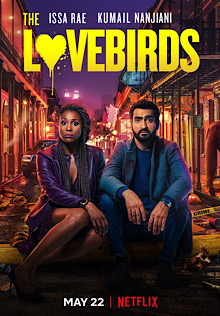 The Lovebirds: I saw so many trailers for this movie in theaters earlier in the year, so was delighted to see Netflix had picked it up for a pandemic streaming release instead. My sole reason for wanting to watch it was because it stars Kumail Nanjiani and Issa Rae, which is a romcom pairing made in heaven. They are charismatic and funny, so I had pretty high expectations going in. Unfortunately, this is a fairly average movie, and falls into the trap where the trailer spoiled most of the plot. Even towards the end, there were still scenes that had featured in the trailer and I felt like nothing was happening on screen that I hadn’t already seen before. The few twists that took place were things I had already predicted (although I watched this movie with my mother who gasped at some twists, so this is clearly only a problem if you have watched a ton of romcom action movies and know the familiar beats). But despite a fairly lackluster screwball comedy plot (couple on the run from the police because they are falsely implicated in a murder and have decided they must figure out what’s going on themselves), the reason to watch this movie is the central duo. Rae and Nanjiani are unsurprisingly great and play off each other in fun ways. Their relationship probably takes more twists and turns than the actual plot of this film, and it just had me jonesing for a conventional drama starring these two, without any added hijinks. So watch this movie for the performances, forgive its basic plot contrivances, and thank Netflix for letting us enjoy this diversion at home.
The Lovebirds: I saw so many trailers for this movie in theaters earlier in the year, so was delighted to see Netflix had picked it up for a pandemic streaming release instead. My sole reason for wanting to watch it was because it stars Kumail Nanjiani and Issa Rae, which is a romcom pairing made in heaven. They are charismatic and funny, so I had pretty high expectations going in. Unfortunately, this is a fairly average movie, and falls into the trap where the trailer spoiled most of the plot. Even towards the end, there were still scenes that had featured in the trailer and I felt like nothing was happening on screen that I hadn’t already seen before. The few twists that took place were things I had already predicted (although I watched this movie with my mother who gasped at some twists, so this is clearly only a problem if you have watched a ton of romcom action movies and know the familiar beats). But despite a fairly lackluster screwball comedy plot (couple on the run from the police because they are falsely implicated in a murder and have decided they must figure out what’s going on themselves), the reason to watch this movie is the central duo. Rae and Nanjiani are unsurprisingly great and play off each other in fun ways. Their relationship probably takes more twists and turns than the actual plot of this film, and it just had me jonesing for a conventional drama starring these two, without any added hijinks. So watch this movie for the performances, forgive its basic plot contrivances, and thank Netflix for letting us enjoy this diversion at home.Tuesday, May 19, 2020
Becoming: Remember When Good People Were in Charge?
I read Becoming last year and loved it (natch) and the documentary is like a distillation of everything that is so wonderful about that memoir. It follows Michelle during the country-wide tour she embarked upon to promote the book and offers up both her life story in her own words, and also a glimpse at the work she's still doing to empower women and girls today. We get to hear a lot of great anecdotes about her childhood, being one of the few black students at Princeton, how she met Barack (if you read the book, those sections genuinely read like a romance novel), and then eventually what it was like to be a politician's wife. She is candid about her struggles, and how she went to couples therapy only to realize that rather than resent Barack for going to the gym, she needed to work on just claiming time for herself. She talks about how disheartening it was to be labelled un-American if she was critical of how her country treats its most disenfranchised members, and how she had to become so careful about her words and her image as her husband's career progressed. And of course, there are plenty of juicy tales about their time in the White House, and what it was like on the last day (there were tears, but only after she had had to deal with the admin of kicking out her daughters' friends who had insisted on a final sleepover).
Michelle Obama knows what she wants to say and she's going to say it, and now that her husband isn't the President anymore, she is allowed to express a full range of emotions with her characteristic wit and empathy. It's wonderful to see how she treats the people around her, like her longtime Chief of Staff or the head of her security detail who has become like a brother to her. There are also some excellent parenting tips and it is clear she is so grateful to how she was raised and she wants to pass that down to her daughters, as well as the young girls she meets across the country. Her message is to believe in yourself, stand up for what you believe in, and never think of yourself as less than. Which are of course lessons that young girls (and let's be real, older women) struggle with the most. She also got decidedly angry when talking about the people who didn't vote during midterm elections when Barack was President, thereby impeding his ability to pass significant legislation. It's not Republicans that bother her - it's all the Democrats who just stay at home. Which seems like an ominous warning for November 2020.
Becoming is a classy and uplifting documentary, like the lady herself. It's warm, kind, and honest about what it's like to be one of the most admired women in the world - turns out life is still hard. Michelle Obama is a reminder of what you can achieve if you have a good team of people behind you, the courage of your convictions, and a desire to make positive and meaningful change and leave the world a better place. If you love the documentary, I highly recommend you also seek out the book and revel in her brilliance for some more time. It is such a pity she and her husband aren't still in the White House, but as this week has shown, they're still out there in the world, trying to help us out.
Saturday, July 20, 2019
The Farewell: The Immigrant Identity (Or Lack Thereof)
Saturday, August 11, 2018
Netflix Stand-Up Specials: Comedy with a Twist
Ali Wong: In her stand-up specials, Baby Cobra and Hard-Knock Wife, the one immediately obvious fact is that Wong is massively pregnant. I don't know about you, but I've never seen a pregnant woman perform stand-up. Turns out, it's pretty hysterical. Particularly when that pregnant woman is prone to delivering filthy jokes and discussing her prolific sex life in vivid detail whilst miming plenty of sexual activity in her pregnant state. If I was the kid in that womb, I'm not sure I would be delighted or utterly mortified when I came across these specials ten years' hence. Apart from that aspect, there's also the fact that Wong is half-Chinese and half-Vietnamese, which allows for a lot of Asian stereotype jokes (which is fine because she's Asian, OK?) The two specials are a perfect set because they logically follow from each other and demonstrate the trajectory of Wong's life. She was not a well-known comedian when she made Baby Cobra, but its popularity on Netflix meant that she is now a household name and Hard-Knock Wife outlines how she has been dealing with some of that newfound fame. Plus we get more stories about her marriage and her husband, a man who I would dearly love to meet because he seems like the complete opposite of his wife.
Hari Kondabolu: I'm Indian (shocker, I know) and I always enjoy watching an Indian perform stand-up and make fun of all the things about my culture that I have hitherto only viewed as annoyances. The first time I saw Hari Kondabolu was when he did a short set on a late-night talk show about how his father came to pick him up at JFK Airport, and a total stranger got in the car and started barking directions, assuming the brown man was a taxi driver. Then, of course, there was his wonderful The Problem with Apu documentary that took a look at all the reasons why Apu from The Simpsons was highly problematic. And now, there's Warn Your Relatives, an hour of him doing jokes on Netflix about how it feels to be a brown first generation immigrant. There's a long segment just about mangoes, and another on airport security. It is all topical, empathetic, hilarious stuff, and the highest praise I can give it is this: I immediately sat my parents down in front of the TV and told them they had to watch it. Reader, they chuckled.
Hannah Gadsby: Gadsby's special, Nanette, has spawned a thousand think pieces and received widespread acclaim. You shouldn't need me to tell you to watch it. But in case you do, here's the gist. Gadsby is from the island of Tasmania in Australia, a highly conservative part of the country where the fact that she is a lesbian wasn't particularly welcome. The special starts out conventionally enough, with jokes about Australia, being gay, and ordinary moments of everyday life, made extraordinary by Gadsby's verbal dexterity and ability to turn anything into a joke simply with her delivery. But the second half of this show is where things take a turn. A dark, uncomfortable, and remarkable turn. No need to spoil it, you can see for yourself. Just know that at the end of it, you will feel a deeply personal connection to this woman and the others like her who have to put up with a lot of shit everyday that is not always easy to turn into comedy.
So there you have it. Three very different individuals, in terms of gender, ethnicity, and sexuality, but all delivering incredible comedy. Perhaps you identify with some or with none, but regardless, the minute you are done watching their specials, you will have a much more expanded world view. To me, that is the greatest power of stand-up comedy. Its ability to make you laugh, but after the jokes stop, to also make you take a deep breath and think.
Wednesday, June 27, 2018
The Tale: The Pain of Remembering
The luminescent Laura Dern plays Jennifer Fox (the writer and filmmaker of this movie; this is a true story about her dawning realization about an incident in her childhood). Things kick off when Jenny gets a call from her mother who has just discovered an old story Jenny wrote when she was 13. Her mother is very upset, but Jenny dismisses her concern, telling her she's making a mountain out of a molehill. What follows is a chilling story that is told in a hazy and erratic way I've never seen before as Jenny tries to piece together her memories. There are flashbacks to the summer when the incident took place, where we get to see how 13-year old Jenny (Isabelle Nelisse) first met the enigmatic Mrs. G (Elizabeth Debicki) and a running coach, Bill (Jason Ritter). And how they slowly gained her trust and eventually subjected her to something that she wouldn't truly understand until the present when she is old enough to realize what exactly happened to her that summer.
This movie is a wondrous piece of storytelling, weaving back and forth through Jenny's diaphanous memories, anchored by her narration that only gives up bits and pieces of this story, making you relive her experience as a young child. You can easily see how this woman has spent her entire lifetime believing that what happened to her was perfectly normal, but watching the cracks appear as she researches this story and interviews people from her past is devastating. She is a journalist who focuses on women's stories and sexual abuse, and to watch her dawning horror that she herself experienced this and isn't just some objective outsider chronicling other's experiences is devastating. Laura Dern and Isabelle Nelisse are a heartbreaking duo as old and young Jenny, and they will be sweeping awards for their performances in the very near future.
In the #MeToo world, stories like The Tale have even more resonance and urgency. Young women are trained to rationalize and justify so much bad behavior - no he's my boyfriend, he's my husband, this is how it is, etc. This movie is an exquisite deconstruction of how that type of thinking is ingrained into us as young girls and perpetuated into adulthood. Even the parents, who suspected what was happening, were so horrified by the taboo that they chose to believe it couldn't be happening rather than consider reality. The takeaway from this movie shouldn't be to lock up your daughters. But it should certainly be to talk to them openly about sexuality and what they deserve. Rather than masking the topic in an aura of uncertainty, which then leads to women keeping secrets and letting themselves live with shame rather than speaking out against the truly shameful people they encounter.
Saturday, May 26, 2018
Nell Scovell & Alyssa Mastromonaco: Women You Should Know
Let's start with Just the Funny Parts by Nell Scovell. Even though you may not know her name, you will certainly recognize the slew of TV shows she has written for during her long career in Hollywood. This includes The Simpsons, Murphy Brown, Charmed, Late Show with David Letterman (there's plenty of juicy detail there about that show's appalling lack of diversity), and she also created Sabrina the Teenage Witch, which is of course my favorite part of her credits. That very abbreviated list already demonstrates her range - this is a woman who can write for anything, and I haven't even mentioned that she co-wrote Lean In with Sheryl Sandberg, and wrote some of Obama's jokes for the White House Correspondent's Dinner. For a few seconds, she was responsible for the words coming out of the mouth of the leader of the free world, and if that ain't powerful, I don't know what is.
Because Scovell is a TV writer, this book is chockful of eminently quotable lines, and I kept highlighting them on my Kindle as I went through the book. One of my favorites is, "I truly believe that if you're a comedy writer and have never been told 'You've gone too far,' then you haven't gone far enough. I also believe that if you're constantly told 'You've gone too far,' then maybe you're an asshole." Which is a nice segueway into her discussions about the many writers' rooms she has had to work in where she was the sole female. The book dissects the implicit biases in Hollywood that lead people to constantly hire white males instead of women or people of color, and also includes Scovell's own #MeToo moment in the early stages of her career. It's not a fun story, but Scovell uses it to illustrate how women feel in male-dominated workplaces and why these heinous scenarios are all too common.
Just the Funny Parts is also an excellent look at why showrunners are sometimes terribly equipped to run shows. As they mostly begin as writers and move their way up the ladder, Scovell points out that "At no point are writers taught how to manage people. Eventually, the writer who was good at ordering around characters in his head ends up in charge of actual human beings." In the same passage, she talks about the importance of empathy and generosity, characteristics that most men probably do not focus on when they think of what constitutes "management material." When she talks about her mentors in the business (many of whom were male, because, well duh) it is clear that she has found some wonderful men who genuinely know how to make her fight for her dreams and tell her that she is more than equipped to put up with the bullshit. And when she talks about her work and research for Lean In, she provides all the statistics and depressing information that re-emphasize the difficulties women face when trying to get ahead in the world.
Scovell doesn't shy away from the fact that she too is guilty of keeping people of color out of her writer's rooms. Never intentionally, but again, just like men didn't hire her to write for TV, she only managed to hire people who looked like her when she was a showrunner, and that is an oversight that she calls herself out on. She doesn't have all the answers, but she is certainly striving to get the message across that things still suck for women and minorities. And she does it with wit and warmth and plenty of common sense, which is something we could all use more of in this day and age.
Moving on, we come to Who Thought This Was a Good Idea? by Alyssa Mastromonaco. She served as Obama's deputy chief of staff and while I previously had no idea what that entailed, now that I have read this book, I am amazed that anyone can actually do that job without having a heart attack. Mastromonaco managed to do it impeccably, even if she does suffer from IBS, which led to a particularly hilarious moment at Vatican City where she shook the Pope's hand while the staff around her were all gazing on in horror to see if she would poop on the Pope (seriously, her words, not mine). She was responsible for coordinating logistics and planning emergency relief for hundreds of thousands of people when Hurricane Sandy hit and was in Haiti for a week during the earthquake. She is also responsible for the White House finally getting a tampon machine in the women's bathrooms. And that seemingly simple gesture demonstrates what a no-nonsense and capable women she is. As far as I'm concerned, organizing fuel tankers and hiring $3 million dollar planes is of the same importance as getting the male-dominated White House to understand that female officials need tampons, and running through multiple levels of security to get to the CVS across the street is not a tenable solution.
Mastromonaco's book is a quick read but searingly effective, with not a single wasted word (much like the woman herself). She describes it as a guide to women who want to break into politics; she was never able to find such a book when she was younger as first of all, there's a dearth of female politicians, and secondly, male politicians write books to showcase their legacy and don't really spend any time telling you how to do the job. So this book is divided into ten sections that cover the key qualities for success: leadership, preparedness, independence, self-awareness, personal shit (because there is always personal shit, but only she is honest enough to address it), confidence, humility, risk-taking, resilience, and kindness. Look at that list - it is brilliant in itself and I want to tape it up by my desk as a personal mentorship guide to think about how I am developing those qualities every day. But thankfully, Mastromonaco does one better and actually talks about these subjects in vivid detail, offering up personal stories of various events at the White House or during Obama's campaigns that helped her learn and grow into the powerhouse she has become.
This is not some slick feel-good political memoir. Mastromonaco lays her life bare, highlighting all of her successes but also her failures, many of which she struggled to take in stride at the time. She suffered from anxiety, overwhelming stress, and she talks about how she is a crier and can't keep her emotions off her face, a fact that made me feel a thousand times better about myself. If that lady can have a good cry and then plan a multi-country trip to help determine American foreign policy, I can probably survive my job just fine. And she too had wonderful mentors who pushed her to take more challenging roles and insisted that she could do the job when she felt under-qualified. But she also calls out the overwhelmingly male-dominated meetings, and the times when she was talked down to or talked over simply because she was a young woman in the boy's club.
So what ties these two books together? Both women are exceedingly funny and unafraid to share the good, the bad, and the ugly. These books are hilarious and profound in equal measure, and while I was able to read them rapidly, I am certain I shall be re-reading them multiple times to gather up more wisdom and laugh over the more inane stories. Scovell and Mastromonaco may have been in two very different fields, but they both highlight how men dominated the rooms they worked in and why we need more women in those rooms. They are at the top of their game and it is clear that the world would have truly been a less wonderful place if they hadn't managed to get their foot in the door. They also demonstrate the importance of mentorship: both women had (and continue to have) excellent mentors who serve as sounding boards and provide sage advice on how to survive in Hollywood and politics, and in turn, they both serve as excellent mentors themselves to their fellow colleagues and up-and-comers.
This brings me to the point that struck me the most deeply about these books: the emphasis on empathy and kindness. These marvelous women place such a premium on these qualities, and that is why I have always personally believed we need more women in senior leadership roles. Women do not merely want to create a legacy and highlight their individual accomplishments - they usually want to build a team and get the job done effectively. And that is something we need to recognize and nurture as true leadership material. The tenth chapter in Mastromonaco's book focuses on kindness and it honestly made me tear up as she cited various examples of the kindness she experienced through the years in the Obama administration. It isn't sappy and female to treat people kindly - it is the human thing to do. Given the current state of our world and the neverending tales of misogyny, harassment, racism, and ignorance, these two books serve as a guide on how to be better. Be a better colleague, be a better boss, be a better human being. And I will be taking those lessons to heart.
Sunday, December 31, 2017
2017: A Literary Year in Review
Short Stories: Uncommon Type by Tom Hanks is the actor's first foray into literary fiction. I was charmed and delighted by this book - the stories are all bound together by a common theme of typewriters (Hanks is famously an avid typewriter collector) but they are also bound together by a whimsy and flair for the unusual that is the hallmark of any good short story collection. There is a story about a mindnumbing press junket in Paris, a funny story about a man who bowls a perfect game, a bizarre trip to outer space, and a vast array of weird characters and strange plots that guarantee you'll find at least one story that sticks with you. But if you don't have the patience to try out a new author (or you eschew anything written by a celebrity), might I suggest a collection by George Saunders (if you're looking for something darkly comic with weird futuristic undertones) or any of David Sedaris's books (if you're looking for the hysterical memoirs of a man who has lived a terrifically interesting life)?
Fantasy Fiction: Philip Pullman's His Dark Materials trilogy was one of the highlights of my adolescence (though I needed to re-read in adulthood to comprehend the Biblical allegory that had passed me by as a teenager). Therefore, I was beyond excited to get my hands on a copy of La Belle Sauvage, the first in his new Book of Dust trilogy that is set a few years before the events of His Dark Materials. This tale is wondrous, as richly imagined and intriguing as any of Pullman's previous works, and it was such a joyous pleasure to dive right back into this world that is so familiar to our own and yet so different in the most fundamental ways. We all managed to wait seventeen years to get this book, but now that it's here, I can't imagine having to wait even longer to see how the rest of this trilogy pans out.
Non Fiction: One of the most un-put-downable books I read, that I ended up talking to loads of people about, was Sapiens by Yuval Noah Hariri. If you don't want to take my word for it, this book also comes highly recommended by Barack Obama and Bill Gates, so put that in your pipe and smoke it. In a brief 400-odd pages, you will end up getting an entire history of mankind, from our nomadic hunter-gatherer ancestors, to the potential superhumans we will become in the future. Along the way, this book challenges all of our preconceptions about why we do things the way that we do - why our lives are governed by our alarm clocks, why agriculture destroyed our peace of mind, and whether or not we have much of a future ahead of us or are doomed to extinction. It's alternately a bleak and fascinating read, and if you're questioning your existence during these troubled times, this might be the book for you.
Rollicking Fiction: Sometimes you just want a book stuffed with interesting characters getting up to interesting shenanigans that all come to a satisfying conclusion. Two books involving hilarious family drama that will take you on a ride and deliver you back to earth with a jolt are The Nest by Cynthia D'Aprix Sweeney and The People We Hate at the Wedding by Grant Ginder. Both are stories about family misunderstandings and miscommunication, and you will experience a love-hate relationship with all of the characters until their authors cleverly suss out what their motivations are. These books will hold you in their thrall and help you forget your own family dramas for a while - doesn't that sound enticing?
Celebrity Memoirs: Gabourey Sidibe's This Is Just My Face: Try Not to Stare is both hilarious and touching, as evidenced by that title. Her personal story is remarkable, and her ascent to fame is astonishing, more so because of the struggles she overcame and the nonchalant manner in which she can talk about them. Early in the year, I also read Anna Kendrick and Lauren Graham's memoirs, which were both perfectly entertaining for anyone who is a fan of their work, but Sidibe's memoir is a worthwhile read for anyone, regardless of whether you have any idea of who she is or not. The story of how the daughter of a subway singer and a Senegalese cabdriver ended up in a movie produced by Oprah? What are you waiting for?!
Books About Books: Finally, one of the last books I read in 2017 was William Deresiewicz's A Jane Austen Education. This book brought it back full circle for me. I didn't love Austen when I first read Pride & Prejudice as a thirteen-year-old, but when I revisited her the year before college, it was a whole other story. I devoured all six of her novels, re-read them numerous times in various Victorian Novel courses, and am always the first to watch any new Austen adaptation that the BBC sees fit to fling my way. A Jane Austen Education is the memoir of a fellow Jane-ite, an English graduate student who initially thought Austen was insipid, only to discover the various lessons contained within her writings that changed his life. Reading this book made me want to re-read all my Austen novels, and honestly, if you've never read any Austen before, I don't think there's a better resolution you could make for 2018 than to pick up a copy of this book, and then a copy of Pride & Prejudice.
.jpg)
_poster.jpg)
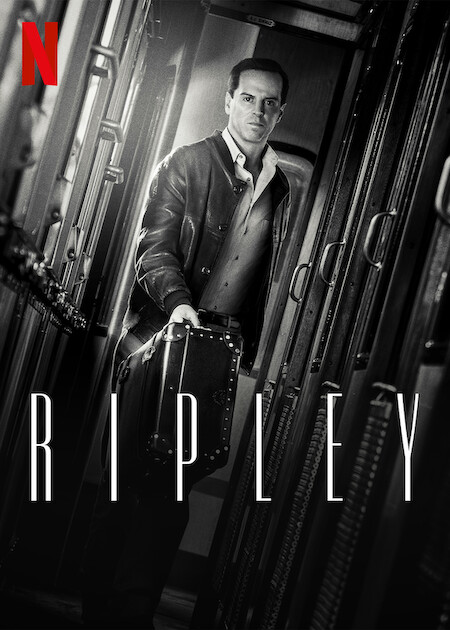
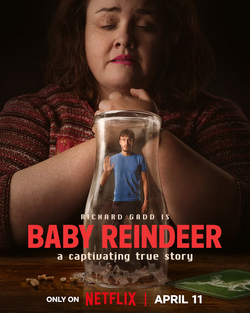
.jpg)
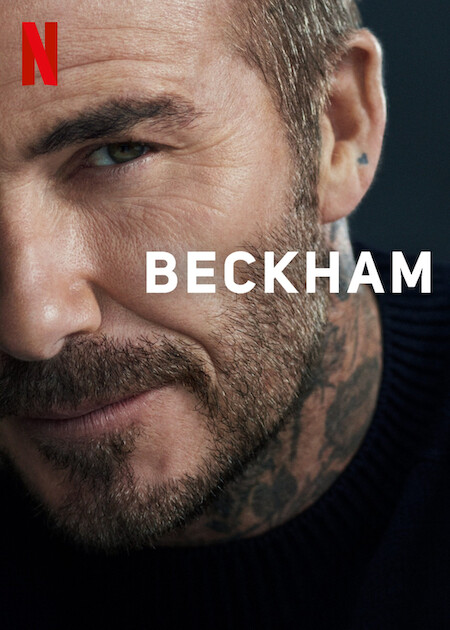

.jpg)

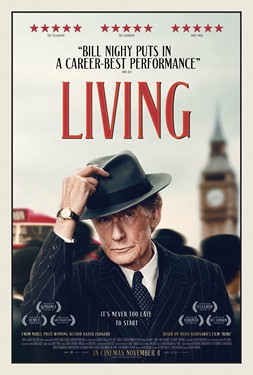

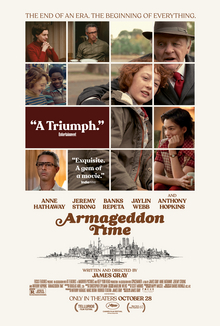
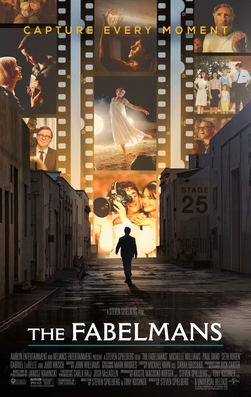


.jpg)


.jpg)
_film_poster.jpg)
.jpg)


